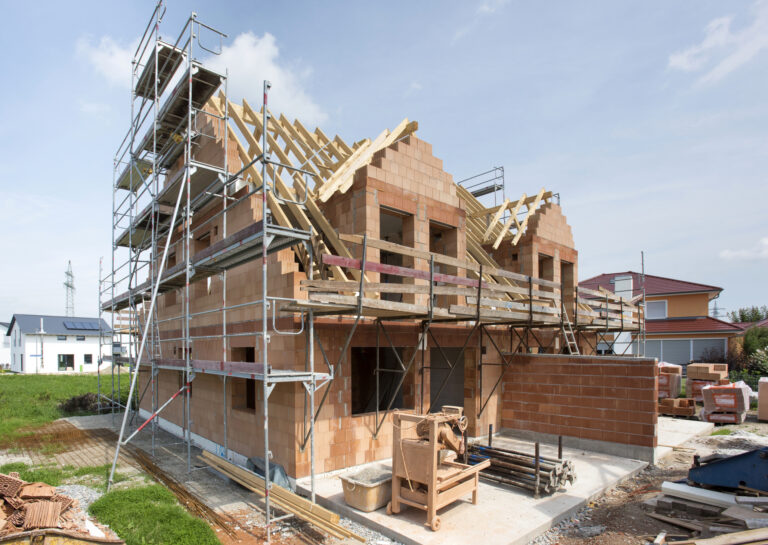James sits down with Jesse Willcox from Lambert Willcox Estate Agents to talk all things prestige property.
In this interview James and Jesse chat about:
- Off market property
- Trends in the higher end of the property market
- Good questions to ask a real estate agent
- How things have changed in the digital age
- Plus so much more!
Read on below for the full transcription of our interview:
– Good day everybody, James from mrkts.com.au here. And today we’re joined by Mr. Jesse Willcox from Lambert Willcox Estate Agents. Jesse, how are you?
– Good, thank you. Thanks for having me.
– My pleasure. Thank you for coming in. So today we wanted to talk about the prestige market and the market in general with you, Jesse. I know that you specialise in the prestige side of property. And so let’s start initially with your CV in under one minute if you can.
– About me?
– About you, what’s your journey to this point?
– Okay, started went to university?
– Yep.
– Was a budding journalist, wanted to get into TV presenting, which we’re doing kind of now. It’s exciting.
– Good man.
– But went overseas, met a few real estate agents, overseas had some family members in real estate, as well, and I came back from the States and thought I’d give it a crack. Got into a internship role and worked from receptionist up to where I currently stand which is director of Lambert Willcox Estate Agents over kind of a 10 year span.
– Wow, so you’ve seen it from the beginning. and you’ve seen every role now. The same as your business partner, Mitchell, who understands these things, he said that he started in a similar role.
– And again, we think that’s probably the best way to do things if you are a kind of young-ish real estate agent, to start from the ground up, because you learn all those things that you need to know then, and now we’re directors, and we can deal with things that might seem small now.
– And you can sympathize with the staff that are with you, because you know what they’re going through.
– Exactly.
– You’ve seen it before.
– Exactly right.
– Very good. What was the journey like then from beginning there at the front desk and now moving into the prestige and being a principal and director of your company? What was the journey like from a learning perspective?
– Amazing, and you know in terms of I was lucky enough to find something I loved doing, so when you go to work and you really genuinely like being there, you start to pick things up, and you start to learn and you’re kind of a sponge. And for me, it was kind of the perfect transition into being a director, learning all those things, but from an educational standpoint, I don’t think there could’ve been any better qualification process. And again, for young people coming in, we say go on, do that, that exact way. You learn all the lessons from how hard it can be for the struggling agents, which we were once too and are now in some sense.
– Always.
– Yeah. And then it makes you more humble when you are getting those, because you know where you came from and how hard it was to get where we are now.
– Good man, and so how did you get into the high end, in the sense of what made you stick around the high end?
– I had a piece of advice when I was really young, really early 20s, and that was start where you want to finish, and I really took that very, very literally, and I thought, hey, why bang my head against a brick wall and stay in the low end market when I don’t want to be there. That’s something again I kind of took as a fact, and I went straight to the market where I wanted to be, which happened to be waterfront housing, and I was lucky enough to have a couple good transactions and that kind of snowballed into momentum where we currently stand.
– Yeah, that’s fantastic, so then if we wanted to give some tips to people, I think you’ve covered it somewhat in making sure that they start from the bottom, but what would be another sort of important for budding real estate agents to be thinking about?
– Big thing for me, depending on where you’re at in your career, work ethic is fundamentally, the underlining, underpinning factor in all this. You can’t just kind of stroll into the high end of the market and kind of be successful over night. The reality’s you need to work hard, and you need to earn you stripes in the industry. The second thing to that, so once you kind of outwork everyone, and you know it’s what you wanna do, then I always say to everyone be yourself, show your personality, have a laugh, do all those things, because I think something that young agents do, agents at large do, is they kind of fit into this box, and I think that they wanna say certain things a certain way or act a certain way, and for me, I think it’s the complete opposite. You can show a bit of personality and shine outside the box. I think that can help a lot, and that’s something I think we’ve done quite effectively.
– Yeah, because at the high end, you’re generally dealing with vendors, and this is obviously my thoughts. I don’t know if I’m right or wrong, but you’re generally dealing with vendors that are at the higher end and they’re in real professionals that have got a career behind them or they’re in the middle of quite a successful career, and I don’t think that they have the time to be mucked around with. They would rather the transparency.
– Yeah, again, so if it’s underpinned with hard work, and they know that that’s where it’s coming from. So if you’ve earned your stripes as I’ve said before, then they’re gonna listen to you, and whether it be in the high end or low end, if you are relatable, and someone likes being around you, more than likely they’re gonna wanna do business with you. And again, that’s a real foundation for us, and it has been moving forward, and that is be yourself but out work everyone, and if you can do those two things effectively, you can really push in that high end market. There’s no reason why you can’t, rather than being your typical robot that doesn’t get creative, which in the current market, we need to do; we need to get creative.
– It seems to be changing everyday, and your industry certainly has. How have you noticed the digital age and adapting with it? Even though I think you might’ve started at the beginning of the digital side of the market, how are you adapting with it?
– Well, exactly right, we’re very fortunate in terms of, I think that wave hit us when we were young age, and so it kind of comes second nature in a lot of senses, but we’re leveraging it as much as we can. We’re big with video, we’re big with interactive video, we’re big with social media, all those things we take as massive priorities. But going back to young agents or budding real estate agents, whether be it young or older, we don’t think that’s the be all and end all. It’s nice to have a social media presence, but what we find is a lot of agents are concentrating more about what they’re doing online than what they’re doing out there in the field, in terms–
– At the call first.
– Exactly, in terms of doing the transactions, getting the listings, and then from there, the secondary thing should be okay, profile, which social media happens to be a part of. Again, we’ve been really lucky with that. I think that we’re kind of on the forefront of that in a lot of ways, and again, we’ll heavily invest in that in the future, but it’s not the be all, end all.
– Good, because once again, work ethic–
– Exactly.
– Will get you through it.
– Yeah.
– Fantastic. So then, how big is your team there at Lambert Willcox?
– There was a one stage, seven of us. We’ve actually just taken back down to five of us in total.
– Okay, understood.
– But right now it’s a bit of a moving animal. We’re kind of just working those things out as we speak, because as I mentioned before, the market’s doing funny things. We wanna make sure we’re not too exposed. That being said, we want to make sure we’re not underexposed either. We need to make sure that we’re ready. The big thing is can we adequately take care of our current clients or the clients we’d like to have in the future, and the answer is yes, now, absolutely. And that’s something, again, we’ll absolutely prioritize number one is serviceability of our current sellers and buyers.
– Because it seems to be that these monoliths are moving through the market and sort of cutting their own paths, and I would consider us as more of a, for lack of a better term, startup style of property developer and you guys are a startup style of a real estate agency, and being really nimble, I think, because knowing what a market trend is and then trying to maneuver your way through the giants to get your share of the market.
– 100%, and a lot of that’s kind of you gotta go through the process, you need to go through . At one stage, we wanted to grow really quickly, and we thought that was a good thing to do, and then we learned from experience that that’s probably not the best way to sell property and increase profitability, so we need to take all those things into consideration. You don’t know until you know, if that makes sense, and we had a couple of agents working for us, wasn’t the right thing at the right time, maybe, maybe not. And, again, it’s all underpinned by are our clients happy? In this case, I think, at the moment, we’re really, really lucky with what we see.
– Very good, so let me ask you then about some of these trends and what you’re noticing. Now, I know we can’t take everything that you say for gospel, because markets change all the time. This is more what you’re seeing out there, being on the forefront of the market. What are you noticing are some of the trends that are starting to show their head, at least on the Gold Coast where you’re working now and in the higher end of the market, what are you seeing?
– Again, with the broader market, we always warn people that our commentary is quite specific, because we work such a fraction market. I work the high end of the market and we don’t have an incredibly large amount of listings, so my commentary can only by on very specific areas, and what we’re finding is that the locals are the absolute drivers right now.
– Okay, interesting.
– There was a big wave of internationals a few years ago. Off the back of that, what we typically see is the interstate market push through, and we’re experiencing that now, and we saw more of that a couple years ago and last year particularly. But now, the Gold Coast locals, you know, we love our city and rightfully so. So, at the moment, that certainly seems to be a big driving force in every market across the board, but particularly the high end at the moment. We know that, for me personally, I know that all my hot buyers right now, the guys that call on me everyday, saying, hey, what’s the new stock, 99% of them will be locals.
– Okay, fantastic, that’s really interesting. Those interstate buyers, the Sydney, Melbourne, and obviously New South Wales, Victoria buyers, are they still here as well?
– 100% and again, touching on what we discussed before about the kind of online strategy and things like that, we need to make sure that we’re in front of those consumers, because they are still certainly a big demographic we want to get in front of, but I think the locals really are the driving force currently. But, when you couple that with a good percentage of interstate buyers, then it’s kind of the perfect recipe to still get good transactions at the moment.
– Excellent, so then are they looking for the big homes or are you noticing they’re going to the luxury sort of apartment space?
– Well, I can’t comment too much on the apartment space, because, again, specializing on the housing market, that’s where I’m at, but what we understand right now, is that there’s certainly a lot of desirability to get into specific areas in that high end of the market. We know that one of the most important factors for most our consumers is aspect. You know, it’s one thing to be a waterfront buyer, but it’s another thing to be a north-facing or east-facing or point position or main river buyer. So there’s always different nuances, and what we typically find is that a north, northeast-facing property, whether it be a knockdown or a fully established home has got more interest and more activity than what we would say, for example, west-facing property, particularly this time of year, because it is hot here on the Gold Coast, so again, we take all that into account when we’re conversing with our buyers, make sure we’re very conscious of those trends particularly.
– So for people at home, if they wanted to know a couple of the points that people are looking for, aspect is one that you’ve touched on now. So you want on the coast, to be looking north or northeast?
– Yeah, typically across the eastern seaboard of Australia, north, northeast is ideally where you wanna be, and I think that’s kind of the general consensus across the board, and then typically south-facing’s good. West-facing’s also good, so it’s hard. I don’t like to kind of villainize–
– No, I hear you. Orientation’s an interesting one, because it depends on the person, naturally.
– Exactly right. For me personally, I really like west-facing, because typically the pool’s on the western side of the property, so the sun is there in the afternoon when you’d like to go swimming, so for me it makes sense to have a west-facing property as long as you’ve got good air conditioning, and I guess, those things in process to make it the livability factor.
– You’re out in the office, as well, so by the time you get home, let’s say it’s early evening, things have cooled down somewhat. And then you can air it out, and everything’s good to go. I’d live on a west-facing property.
– Yeah exactly, again, you always account for your buyers and what their movements are, as well. For example, tonight, I’ve got three open homes back to back, all waterfront properties, and, again, just trying to open up to a different demographic, particularly again, the locals, because they’re the ones who are going to be finishing work between three, four, five, so they can go through the open home between six to eight this evening. And that’s going to work for them as opposed to just saying Saturday, Sunday, middle of the day, for example. So we’re very conscious to change those around depending on who we want–
– So adapting to the market, as always. So, when people are looking in your properties and trying to find a waterfront property, what trends are you starting to notice? Do they wanna be on smaller canals or do they want main river? What are the trends generally?
– Again, typically speaking, main river’s always a big front winner, and what we often find with main river is that it’s usually a secondary waterfront purchase. Usually it’s someone up sizing from their canal somewhere or someone up sizing from a dry block, typically to get onto the main river because they know that particularly here on the Gold Coast, you’ve got better access to the broad border which means better boat, better fun on the weekends.
– Which is just always important if you’re working hard, you gotta be able to get out there and enjoy the place you’re living in. Have there been a rise in the baby boomers or retirees? Have you noticed anything like that in the last couple of months?
– Absolutely, that’s always a big driving force, but I think particularly last couple of years, we’ve seen a lot of that, people coming up from Sydney, Melbourne, cashing out on what was a very, very hot market. So, a lot of them coming up capital rich and saying hey, you know what, we want that warmer weather. And particularly right now, with the Gold Coast infrastructure, and what we offer kind of in a global basis, it really is second to none. And for the older demographic, they just simply love it, and why wouldn’t you?
– Exactly, it’s been a beautiful day today, and it normally is, although it’s getting a bit hot everyday of the year. So buyers looking to upgrade, what would be your three tips of when they’re investigating, what is a good question to ask of an agent? It’s a tough one.
– Yeah, that is a tough one. I guess, for me personally, it just depends on, are they looking to renovate, are they looking for a brand new construction, are they looking for a specific water orientation? So, again, there’s so many nuances to that, but, for me, brick construction typically is very well-received, whether it be a renovator or an established home. I think the quality in the build structure’s a big thing at the moment we’re finding, particularly with our internationals. They’re very, very clear with looking for good quality, potentially concrete constructions, if they can, even if it needs a bit of work.
– Okay, so solid build, and would you recommend people request a building and pest inspection on that property?
– Of course, absolutely, so we suggest that 10 out of 10 times whether its necessary or not. We always say get it done, peace of mind, and that way you can move on. We’ve taken it one step further, and because the market’s tightened up, we like to make it as user friendly as possible, so we very often get ourselves to do that prior to going to the market, and that way, making things easy as possible for all our consumers.
– It’s a good idea, because you never know, and no one really enters a transaction, I don’t believe, with bad intentions, it just happens to be a situation, they haven’t even been aware if they know it themselves.
– Exactly, yeah, and from the seller’s perspective, not only does it add peace of mind to the buyers when they’re buying, but from a seller’s perspective there, if it’s a leering problem, now they’re aware of it, and they’ll take that into account. We’ll get it fixed or put into account with the price, so, again, that’s always a good thing to do.
– Excellent, have you noticed are any buyers that are coming to you and say that they’re looking for vacant land or areas that they want to really use it as their blank masterpiece?
– Absolutely, again, locals is that’s a big one right now, locals looking to build, and the climate is very much ready for those build opportunities. We’ve sold a couple of bigger transactions over the last couple of years, and they’ve been vacant land, because, again, you can put your own stamp on it. Build costs aren’t exuberant, and if people can kind of put together their dream home, and say, hey, we want it perfect, then that’s the only way that you wanna do that, because otherwise there are elements of compromise with most properties.
– Fantastic, so the open house process, when you arrive on the day, give me a basic rundown of what it is about the open house that you enjoy.
– Yeah, okay, well, open house is a really easy way for the seller to display their property to the market, for a couple of reasons. Number one, it works well to the seller, because they can account for, okay, we’ve got two open homes this weekend or three this week. We need to have it ready between x and x, so it works well in terms of a logistical perspective for them, but from a buyer’s perspective, it gives them the ability to come through the property without having to outwardly contact the agent. Because, particularly, in the high end of the market, what we find is that buyers and consumers at large are very apprehensive to contact sales people. Which I think they’ve got every right to be, because if we go to a, for example, clothing store, there’s nothing worse than when you’re looking through a rack and someone just talks to you or harasses you and keeps chasing you up, and there’s definitely that sentiment out there. So if buyers can come to an open home and be quite ambiguous and not talk to the agent too much, they’ll much rather opt with that than a private inspection which is a little bit more personalized. That being said, it’s always good to layer it with private inspections, as well. But going back to open homes at large, it’s always a good kind of indicator as to how the property’s tracking, because if you’re getting 20 inspections in an open home, you know that it’s a well-priced or well-positioned piece of stock, well-positioned property. But if you get really low numbers, then there’s probably a problem, whether it be pricing, presentation or the agent, so there are things that we can address quite outwardly, simple based on open homes, so there’s an array of positive things come off the back of it.
– So should the vendor expect feedback from their agent that is in depth about the numbers coming in and who the types of people–
– Absolutely, and again that’s probably what we pride ourselves on very much is just how thorough we are with what are the buyers saying, how are they saying it, where are they coming from, what market trends can we track, if we can move, will we and what do we need to do? So absolutely, no doubt about it, and we find that for whatever reason, we run into some sellers who say they haven’t heard from their agent. For us, that’s really, really concerning, because these are the biggest transactions for most families across the Gold Coast or across Australia, so, for us, that is no doubt about it, very, very important to keep them informed in an in depth way.
– It’s the largest asset, generally. The stat, I think, is something like 80% of people, it’s the largest asset that they’ll hold.
– 100%.
– So you would expect them to be doing their research, and you would want them to do their research and speak to their agent and expect more from their agent, I suppose.
– Yeah, that’s broadly speaking, there’s other agents that do it really, really well, but I think Australia at large, we’re quite lucky. I think most of our agents are quite good. You know, I’d think to think, anyway. I think we’ve got a good work ethic.
– You touched on it before, and I find this interesting, and this is more of an advisory conversation, I would suppose, but, for me, as soon as I see a property that I like, my instant reaction is to pick up the phone and call the agent, because how I’m conditioned is the only way you’re gonna get the full story is if you get the agent on the phone. Because he’ll tell you what, and you can ask him questions. He or she, if you think that they’re giving you information that is not believable, it’s up to you to then double check it, and then you can obviously call them out on it, but would you rather receive the phone calls or are you happy to respond to emails? Or realistically, you want people to come and look at it because that’s the only way to get ?
– Well, number one priority’s driving inquiry. How do you get the phone to ring or how do you get them to the open home? Either or, it’s a positive result, so all that marketing is orientated around getting that phone call, exactly, because it gives us the opportunity to feel out where the buyers are at, gives us the opportunity to educate the buyer and gives us that opportunity to then sell the property and relay that to the seller, of course. So for us, we love the phone calls. Company policy, ideally, every call is returned within half an hour again, case by case. There’s circumstances to that, but, yeah, we love the phone calls and keep em coming.
– I just think that it’s the most logical way to get the information in the quickest way, instead of sending an email, but we’re sort of sticklers about that, so a lot of the content that we put online is people to make sure they’re doing their homework, do their research, and pick up the phone, and build relationships.
– Love it.
– So, if there’s an off market opportunity, for example, are you getting buyers that come to you and say, Jesse is there anything that you’ve got that isn’t being advertised?
– Yep.
– And what do you think is driving them?
– What’s driving those buyers? Well, again, people that miss out on properties, typically they’re our premium buyers. If they’ve been in the market for a couple of months and they’ve missed out, and they’re chomping at the bit to get into a suburb of choice. They’ll call an agent, say hey, have you got any options for us, and very often, we will, because on the flip side of that, we’ve got many sellers that want to sell their place but don’t want to actively go to the market or don’t wanna mess with the marketing, or there’s an array of kind of problems with that, in some cases. And, the other incentive that we’re doing at the moment, and again, because the market is tightened, we need to move with the climate and what we actually said to a lot of our sellers is prior to going to the market, give us the opportunity to get our hot buyers through and let them know there’s and off market opportunity here. We’ll also contact other agents that work in the area that specialize in the area and give them that opportunity, too, so then we’re kind of killing two birds with one stone. You’re giving the seller the peace of mind to say, okay, yep, gotten some buyers through and maybe we’re between x and x now based on their feedback. But from a buyer’s perspective, to get a phone call from an agent saying, hey I’ve got a great opportunity for you, it’s exciting, and sometimes we can even prompt that to be a premium buyer, because they don’t want that property to go on the market. So for us, it’s a great thing to do and many, many sellers are opting with that at the moment.
– So a good strategy for people, if they’re approaching an agent, and there’s nothing on the market that suits them at the time, maybe that’s a question.
– Absolutely, and, for example, just before I came to this meeting, we’ve got a great north-facing property that’s coming on in Broadbeach waters, and we’ve just sent out a VIP exclusive invite to the agents that work in the area and our database of roughly 500 buyers looking within that suburb at the moment. So, I’m really excited, and that VIP’s tomorrow night, so we’ll see what those numbers bring. We’ll sit down with the seller and say, hey, this was the activity, what do you wanna do? Should we price it, should we auction it?
– You can analyze.
– Exactly, right, and then have more of an educated approach as more of a speculative approach.
– So how do you set a price? It’s called an appraisal. How does that work?
– Case by case, I can’t give away all my secrets.
– No, understood.
– I’m kidding, I’m kidding.
– But in general, what are they–
– We do what our buyers do. Typically what buyers do, they’ve got access to every sale that’s transacted within a certain period, and we can’t hide that; we’re not the gatekeepers of prices. And our role has changed to what it was, say 20 years ago. Now we need to be really open, open with our sellers. We need to be open with our buyers, and okay, realistically, it’s gonna be seen between x and y, because of x, y, z in terms of comparable sales and things like that, but particularly in the high end of the market, there are always nuances to that. You might have quality of build, you might have the north aspect, you might have a bigger than normal block.
– So that’s the liberty of ownership.
– Exactly, we have to have that–
– Which surprisingly matters.
– I would, yeah, I’d buy a property.
– And daily with that need help with sales that have massive premiums on them, because one of the Hemsworth’s had laid his hammer upon it. Good on him.
– So what this property, it was a cost–
– Okay, sorry. So there are strategies, but I really like that. Do what the buyers do.
– Exactly, and again, so we then run those buyers through within a rough guide. We then sit down with them and the sales, and say hey, this is what the buyers are saying, what do you wanna do? So, again, we don’t speculate as much as we used to. We’re a lot more informed now based on access to online sales in terms of the buyers, and then also our approach of running the buyers through the property, and then that way it’s not the agents simply telling the seller what they wanna here which often they’ll do. They’ll list a property just to get it online, and then they’ll over-inflate it so then the seller’s all happy and says off you go. Or, adversely, we can unconsciously under-price it, and then they don’t need us, so again, it’s a little bit of give and take, and I think right now the power of an agent is in the marketing skills, how many people can we get through the door or how many people can get our phone to ring. And also in terms of negotiation skills, so if you couple that great marketing and good negotiation skills, you’re inevitably going to get a good result.
– That’s the balance.
– That’s it.
– There’s a balance to it, so what is one experience then that has stuck with you on your entire real estate journey, now? That you think would be beneficial to somebody that’s looking to either buy their first home or buy their last home? Just something that you’ve experienced that maybe you think it’s common knowledge, but I’m sure there will be–
– I would suggest if you’re a buyer out there, definitely attend auctions, educate yourself with the market, as you touched on before, get buddy-buddy with some agents, because it’s always good. If you’re what an agent considers a hot buyer, then you’re probably gonna be a step ahead of the market place in terms of transactions that are happening, and also what else is gonna be coming to the market. So definitely build a relationship with agents. I think that could go a really, really long way.
– I agree; I fully agree with you. Wonderful, Jesse thank you very much for your time.









